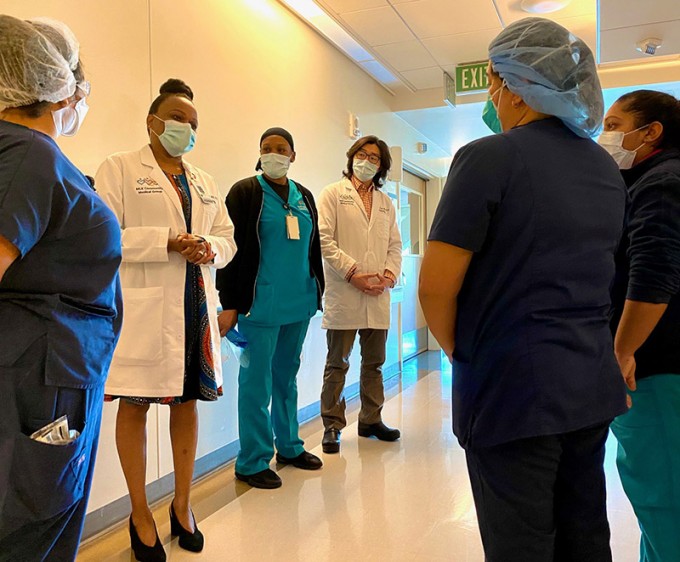CNO Roundtable 2020
2020: The Year of the Nurse and Midwife
Q: What is one accomplishment you would like see the nursing profession achieve during this Year of the Nurse?

Debra Flores, MSM, BSN, RN, FACHE
(pictured above, second from left)
Chief Operations Office / Chief Nursing Officer
Martin Luther King, Jr. Community Hospital
The accomplishment I would most love to see the nursing profession achieve is practicing nursing to the full extent of our training, licenses and capabilities. Now more than ever, exceptional basic skills — such as assessment, planning, implementation and evaluation of care — are key, as is directing care in a coordinated, interdisciplinary fashion. Being able to consistently provide proactive, safe, compassionate, individualized care would be a dream fulfilled for me.
There are four important lessons I’ve learned throughout my nursing career:
- You’ll never know it all, so don’t try to! Focus on what’s most relevant.
- Understand that sometimes, your opinion matters most to you and not to others. Know when to keep it to yourself and focus on what others need.
- Look in the mirror every day and ask yourself, “Are you the nurse you would love to have take care of you?”
- Being a light to the world is often more important than being a pilot light for yourself.
Lori Burnell, RN, Ph.D., NEA-BC
Sr. Vice President /Chief Nursing Officer
Valley Presbyterian Hospital
Hats off to the World Health Organization for designating 2020 as the Year of the Nurse and the Midwife. Florence Nightingale is the founder of modern-day nursing, so it’s great to see WHO honor her legacy and mission on this bicentennial celebration of her birth and her work. Even before the COVID-19 outbreak, I had envisioned a crusade of nurses across the globe joining forces to obliterate hospital-acquired infections through a universal and unyielding handwashing campaign. Hopefully, the good practices we are now employing will continue long after this pandemic is over.




